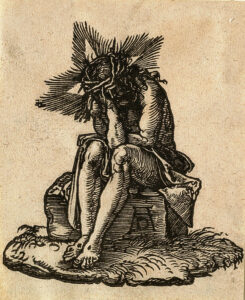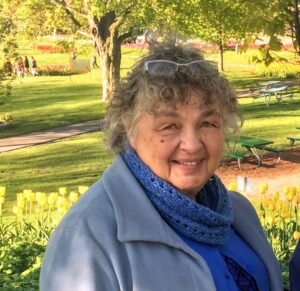
Most mornings, I try to get outside to notice and breath in, the wonder of God’s handiwork. And my heart is full of the abundance and color and design and loveliness. It is a highlight and sets the mood for my day.
The Bible represents the whole of creation, what we call the natural world, as being caught up in the dance of joy and celebration. The trees in the forest clap their hands, the mountains and hills are bursting with joy, the brooks are bubbling with laughter. As the musical, The Sound of Music states it—the hills are alive with the sound of music.
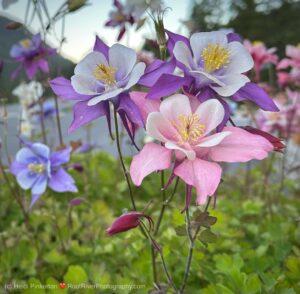
With each new day, the birds start their singing, the flowers open their petals to the sunlight and warmth, the animals resume their busy activity with delight. As GK Chesterton observed, It’s as though, with each new day, God says “do it again.”
Let the heavens be glad, and let the earth rejoice;
let the sea roar, and all that fills it;
let the field exult, and everything in it!
Then shall all the trees of the forest sing for joy
before the Lord, for he comes. (Psalms 96:11-13)
Do you experience joy when you encounter the beauty and aliveness of the creation? How often do you get outside to be reminded of the glorious creation? God has made a world brimming with beauty, and he has made us with the capacity to appreciate the beauty. As Gerard Manley Hopkins wrote, “The world is charged with the grandeur of God.”

The Old Testament Hebrew poetry employs numerous words for joy: “merriment,” “gladness,” “happy,” “laughter,” “wonder,” “exuberance,” “exulting,” “praise,” “worship,” “shout,” “sing,” “delight,” and “blessed.” Even dancing becomes a synonym for joy, as in “you have turned for me my mourning into dancing, you removed my sackcloth and clothed me with joy” (Psalm. 30:11). It’s as though the creation is saying to us: What are you waiting for, you children of God? Don’t you get it? Surely you would want to join in the dance as well. I confess, I have never been much of a dancer, but when I am caught up with the beauty of God’s wonderful world, my heart is dancing.
All these things point us to a God who is beautiful, wise, loving, and lavish with his gifts.
The heavens declare the glory of God,
and the sky above proclaims his handiwork.
Yes, there is also evidence of a fall—thorns, thistles, weeds, and decay. In addition, we find abuse, exploitation, and pollution. But in spite of all this, it is still true that the earth breaks through with God’s beauty. And even though our senses are dulled by the fall, we are still able to respond to that beauty with joy and gratitude.

Are you having a blah day? We all do. But that’s no reason to stay in the gloom. Sometimes we need to lift our eyes to the heavens, see the lovely green trees against the blue sky. If it is a dreary day, I am reminded of the importance of the rain and moisture for the growth of all these beautiful gifts. And the Lord turns my mourning into dancing (Psalm 30:11).

One of my favorite hymns is “We Plow the Fields and Scatter,” originally written by Matthias Claudius in 1782. More recently it was included in the Godspell Musical with a new tune. It is a harvest hymn, but one that serves as a reminder that “every good and perfect gift comes from above, from the Father of lights” (James 1:17).
You can find the 1973 Godspell version here:
https://www.youtube.com/watch?v=2mURti-s0jc
It never fails to fill my heart with joy.
- We plow the fields, and scatter the good seed on the land,
But it is fed and watered by God’s almighty hand.
He sends the snow in winter, the warmth to swell the grain,
The breezes and the sunshine, and soft refreshing rain.
Refrain
All good gifts around us
Are sent from heaven above;
Then thank the Lord, O thank the Lord
For all His love.
- He only is the Maker of all things near and far;
He paints the wayside flower, He lights the evening star.
The winds and waves obey Him, by Him the birds are fed;
Much more, to us His children, He gives our daily bread. - We thank Thee then, O Father, for all things bright and good,
The seed-time and the harvest, our life, our health, and food.
Accept the gifts we to offer for all Thy love imparts,
And, what Thou desirest, our humble, thankful hearts.
I am writing this on July 4th, the commemoration of American Independence. We have witnessed an amazing display of fireworks in our city. But nothing to be compared to God’s amazing fireworks display of Aurora Borealis, or the Northern Lights.
“The world is charged with the grandeur of God.” –Gerard Manley Hopkins










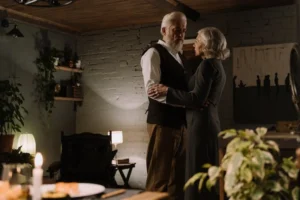




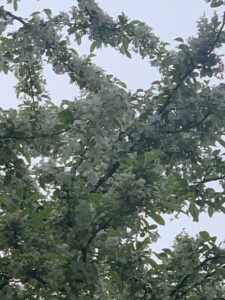


 I am often reminded, even haunted by that famous rejoinder by Eric Liddell in Chariots of Fire. When his sister tries to convince him to give up running, give up competing in the Olympics, and come serve Christ in China. He promises that he will go to China (and he eventually does go), but for now, he says, “God made me fast, and when I run, I feel his pleasure.” Do we feel God’s pleasure? Ever?
I am often reminded, even haunted by that famous rejoinder by Eric Liddell in Chariots of Fire. When his sister tries to convince him to give up running, give up competing in the Olympics, and come serve Christ in China. He promises that he will go to China (and he eventually does go), but for now, he says, “God made me fast, and when I run, I feel his pleasure.” Do we feel God’s pleasure? Ever?


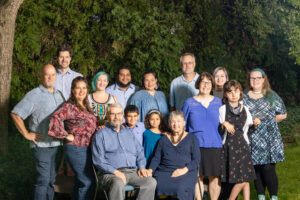
 I am not good at acknowledging weakness. Most men have trouble with this. According to Brene Brown (Daring Greatly and TED Talk fame), the most common shame factor for women is body image, and the leading shame factor for men is weakness. As I mention this to people, I regularly get nods of “oh yeah.”
I am not good at acknowledging weakness. Most men have trouble with this. According to Brene Brown (Daring Greatly and TED Talk fame), the most common shame factor for women is body image, and the leading shame factor for men is weakness. As I mention this to people, I regularly get nods of “oh yeah.”


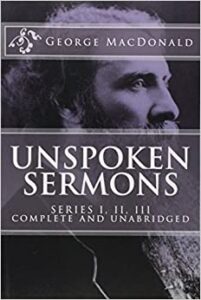 Jesus’ perfect trust in the Father means that he is also perfectly at home in the world and can move about it with a sort of light mobility, for the world is the Father’s. Because of this complete trust in the father, the true child is in harmony with all of God’s creation. Rather than a heavy struggling with nature to provide for one’s needs, the child has a sense of supreme liberty and lightness and can play and delight in all of the Father’s works. He exists in a state of ‘divine carelessness.’
Jesus’ perfect trust in the Father means that he is also perfectly at home in the world and can move about it with a sort of light mobility, for the world is the Father’s. Because of this complete trust in the father, the true child is in harmony with all of God’s creation. Rather than a heavy struggling with nature to provide for one’s needs, the child has a sense of supreme liberty and lightness and can play and delight in all of the Father’s works. He exists in a state of ‘divine carelessness.’ 





 And I am finding that the loss of my wife puts me in a position of uncharted territory, a whole new terrain in life. I am sometimes disoriented, and it is very hard for me to see what lies ahead. I really can’t imagine life without her. So, while I am always dependent on God (far more than I realize), now I am keenly aware of that dependence in a way that makes me cling to God as a child clings to his mother. I am trusting God in a whole new way. And this is good, and even a little exciting—a new adventure. Oh yes, it is painful and confusing at times, but this sense of “just you and me God” is both frightening and exhilarating at the same time. That familiar verse from Proverbs 3:5-6 is becoming a vital part of my relationship with God.
And I am finding that the loss of my wife puts me in a position of uncharted territory, a whole new terrain in life. I am sometimes disoriented, and it is very hard for me to see what lies ahead. I really can’t imagine life without her. So, while I am always dependent on God (far more than I realize), now I am keenly aware of that dependence in a way that makes me cling to God as a child clings to his mother. I am trusting God in a whole new way. And this is good, and even a little exciting—a new adventure. Oh yes, it is painful and confusing at times, but this sense of “just you and me God” is both frightening and exhilarating at the same time. That familiar verse from Proverbs 3:5-6 is becoming a vital part of my relationship with God.
